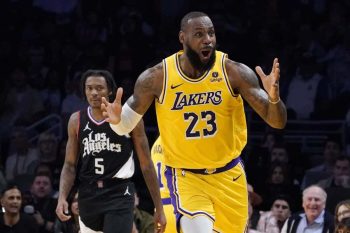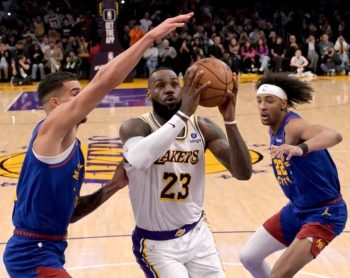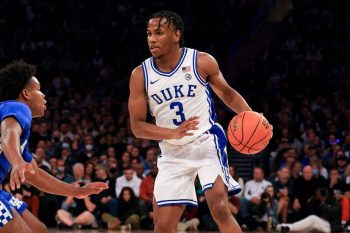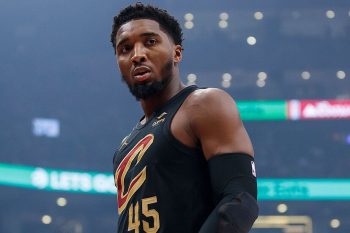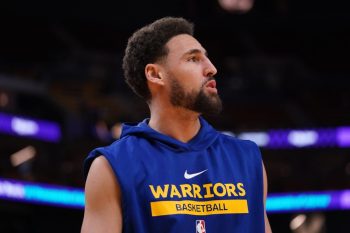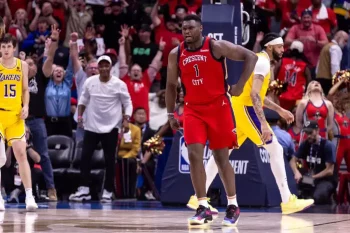NBA
Tim Duncan: Far Too Good to Retire Just Yet
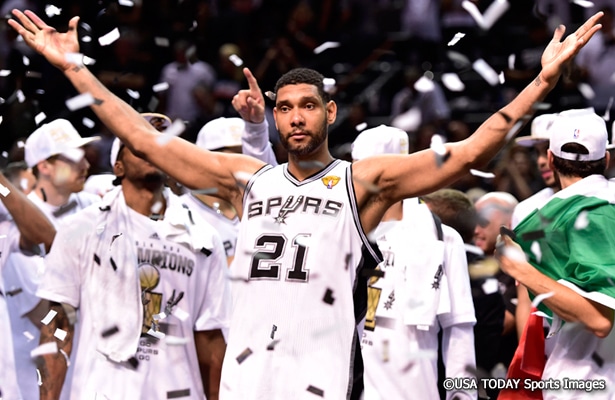
As he had done many times prior to that point, Tony Parker beat Rashard Lewis off the dribble and darted toward the basket. As the Miami HEAT converged, Parker—realizing his opening had closed—refused to force an errant shot.
He found Kawhi Leonard in his sweet spot—free-throw line extended.
With three dribbles, Leonard swerved through the compromised defensive wall the HEAT built and was in front of the basket. With Ray Allen in his face, Leonard found Boris Diaw who quickly found Tim Duncan for a thunderous dunk over the outstretched arm of Chris Bosh.
The normally reserved Duncan couldn’t help but to slightly pump his fist and flex his bicep.
This, after all, was why he was here.
One game later, with one more win needed, after a year of being haunted by a fateful shortcoming, Duncan would again rise.
The pain was nearly squelched, but out of sheer desperation on the part of the HEAT, Duncan suddenly found Udonis Haslem beside him while the Larry O’Brien trophy was in front of him.
With his Spurs trailing by five points in a game he had been dreaming about for the past 362 days— Duncan again summoned his 2002 self and ensured that his words were not hollow.
“We’ve got four more to win,” Duncan said after the Spurs toppled the Oklahoma City Thunder in Game 6 of the Western Conference Finals.
“We’re gonna do it this time,” he promised.
And of that, he made sure.
With Haslem on his hip, Duncan received Parker’s pass into the post. Isolated, Duncan easily drove around Haslem, converting a running one-hander through the middle of the paint. On the very next play, he converted a layup while wearing Haslem as a shirt, and in the game’s most pivotal moment, it was Duncan who stood tallest.
The leader of this team sparked a 16-2 run over a span of five minutes in the second quarter that helped the Spurs capture a lead that they would never yield. They rode the tidal wave of emotion over the game’s final 30 minutes and eventually emerged as champions.
Three hours later, valiant, and in all his glory, after embracing David Robinson and Avery Johnson and after crying tears of joy with Gregg Popovich and Manu Ginobili, with the weight of the world off of his shoulders, Duncan sat down among the confetti in his beer soaked t-shirt.
“I still think I can help,” Duncan said on NBA TV with a shrug.
Without question, he certainly looked like it.
Somewhere along the line, the NBA world began wondering when Duncan would ultimately opt to call it a career. His career achievements reads like an NBA accolades most wanted list—three Finals MVPs, 14 All-Star selections, 10 All-NBA First Team selections, eight All-NBA Defensive First Team selections and now, of course, the right to eat dinner with Magic Johnson and Kobe Bryant.
Indeed, there is nothing left to prove.
For Duncan—though he refused to directly answer questions about his future or potential retirement—he is not widely believed to be ready to walk away from the game just yet.
Yes, he has nothing left to prove, fully exorcising perhaps the only demon that haunted his storied career. But anyone who has had the pleasure of knowing Duncan already knows what his demeanor, his countless sacrifices over the years and the very way he plays the game has been telling everyone all along.
For Duncan, it never was and never will be about proving anything.
For Duncan, it always was and always will be about the camaraderie, the winning, the sneakers squeaking and the bounce of the ball echoing throughout the gym.
For Duncan, it will always be about something bigger than himself, his career, his accolades or his mighty legacy.
After Game 4 of the Finals, Duncan was asked what it meant to pass Kareem Abdul-Jabbar for the all-time playoff minutes record and Magic Johnson for the most double-doubles in playoff history.
“I can appreciate you saying those names, and having passed them in anything, it’s an honor to be in that position,” Duncan said dismissively. “[But my] focus is winning one more,” he said.
That is exactly what he went out and did.
Make no mistake about it, Leonard was the best player for the Spurs and his brilliant play on both ends of the floor lifted San Antonio on the biggest stage—that is what true superstars are made of. At some point in the future, when Duncan and Tony Parker and Manu Ginobili are long gone, Leonard will be the torchbearer in San Antonio.
But while Leonard was busy becoming the third youngest NBA Finals MVP in history, it is Duncan who has been something much more valuable.
It is he who has been the MVP of the franchise.
Since being drafted in 1997, he has been the primary catalyst and the constant that has seen the Spurs amass a mind-numbing regular season win-loss record of 950-396.
Since arriving on the scene in this league, the one year the Spurs failed to reach 50 wins was the year when they only played 50 total games due to the lockout, and they won 37 of them. For the record, that is the equivalent of going 61-21 over the course of an 82-game regular season.
Along the way, he has willingly sacrificed money, deferred touches and shots, and altered his game to accommodate Gregg Popovich’s wanting to go from an inside-out offense initiated with low-post touches to one that allowed both Parker and Ginobili to play pick-and-roll sets and, most recently, an offense with some Princeton features.
In 2007, when the Spurs were champions last, it was Parker who had risen up to become the Finals MVP, and for that, he thanks Duncan.
“Tim has been so unselfish since I’ve been here,” Parker told NBA TV. “He allowed me to grow up and become the player I became. He never took it for himself. That’s why in 2007, I was the Finals MVP, because he was so unselfish. I say thank you to Timmy for allowing me to become a complete player.”
Today, Leonard is the beneficiary of the benevolence.
Politics, the proverbial paper chase, status, accolades, selfishness—just a few of the erodents that can tear at the very foundation of a team.
Just not Duncan’s team.
To him, the game always has been and always will be bigger than himself. And that is the reason why many of his teammates believe that he will return.
“Honestly, I can’t see him walking away,” one member of the 2014 NBA Champion Spurs told Basketball Insiders privately. “Tim is just too into it. He loves the game and this team too much. And the bigger thing about him is that he can still play at such a high level.”
And those were sentiments that were echoed by Parker.
“It will come to an end, but I don’t think next year,” Parker told NBA TV after the Spurs clinched their fifth championship. “Tim just loves to play and he is very passionate about basketball. Look at our team, he just loves being with us, we love being with each other, and I don’t see any reason he wouldn’t come back.”
Based on how he performed on the court, there is no reason to believe that Duncan is incapable of returning. At this point, the only question is whether he wants to.
As the offseason begins and futures are pondered, Duncan will face important questions that he will ultimately have to answer for himself.
What drove him this past season? Was it revenge? Was it pain? Or was it simply that his competitive fire still burns deep down inside of his 38-year-old belly?
After scratching, clawing and fighting, and after defying Father Time for at least one more year, Duncan certainly did not look like a player who should be retiring.
No, he looked like many other things: a competitor, a fighter, a leader.
He was: a winner.
In the end, he looked just like Tim Duncan—the best power forward in NBA history—not someone who is quite ready to retire just yet.
